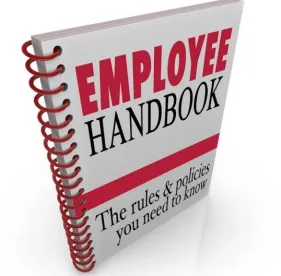Breaking news – sometimes agency guidance, or even enforcement positions, change!
A recent example comes from the National Labor Relations Board (NLRB) with its June 6, 2018, memorandum regarding “Guidance on Handbook Rules Post-Boeing.” While the lack of consistency can be frustrating for employers, there is good news this time: Common sense seems to have triumphed – at least for now. (For a review of some of the prior NLRB guidance, see our prior article: An Unfair Employer Policy Roundup to Help Avoid Unfair Labor Practices .)
Late last year, the Board established a new test to balance employee and employer rights. This memorandum applies this new standard to various topics commonly addressed in handbooks or other company policies. The new guidance defines three categories of rules and basically states that the mere possibility of impacting a protected right is no longer adequate justification to declare a rule unlawful.
Instead, the NLRB suggests considering what might be a reasonable interpretation of the rule and balancing any potential negative impact on protected rights against the business justification. Nonetheless, employers can still get in trouble by applying rules in a way that prohibits or interferes with protected activity.
The first category involves rules that are generally lawful. A great example of this first category are “Civility Rules,” which generally prohibit rude or condescending behavior, prohibit disparaging comments about coworkers, or prohibit disparaging or offensive language. Notably, the Board mentions that employees can make complaints (and therefore exercise protected rights) without having to resort to disparagement.
Even more important, the Board implicitly recognizes that its prior rulings, which found many civility rules unlawful, created a conflict for employers, who are responsible for protecting employees from harassing behavior. The Board reasoned that this type of rule “advances substantial employee and employer interests, including the employer’s legal responsibility to maintain a workplace free of unlawful harassment, its substantial interest in preventing workplace violence, and its interest in avoiding unnecessary conflict or a toxic work environment . . . or other legitimate business goals.”
The following are additional examples of generally lawful rules:
-
No photography rules and no recording rules
-
Rules against insubordination, non-cooperation, or on-the-job conduct that adversely affects operations
-
Disruptive behavior rules
-
Rules protecting confidential, proprietary, and customer information or documents
-
Rules against defamation or misrepresentation
-
Rules against using employer logos or intellectual property
-
Rules requiring authorization to speak for company
-
Rules banning disloyalty, nepotism, or self-enrichment
The second category of rules are those that should receive individual analysis. The NLRB guidance here is that an employer should assess what rights might be impacted, and whether the negative impact is outweighed by legitimate business reasons. These rules include the following:
-
Broad conflict of interest rules (compared to those that specifically target fraud and self-enrichment)
-
Confidentiality rules that broadly encompass “employer business” or “employee information” (compared to those aimed at customer or proprietary information)
-
Rules regarding disparagement or criticism of the employer (compared to criticism of employees)
-
Rules regulating use of the employer’s name (compared to use of the logo or trademark)
-
Rules generally restricting speaking to the media or third parties (compared to speaking on the employer’s behalf)
-
Rules banning off-duty conduct that might harm the employer (compared to rules prohibiting rude or insubordinate behavior at work)
-
Rules against making false or inaccurate statements (compared to making defamatory statements)
The third category involves rules that are generally unlawful because they prohibit or interfere with guaranteed rights. These include the following:
-
Confidentiality rules that specifically prohibit employees from sharing information regarding wages, benefits or working conditions
-
Rules against joining outside organizations or voting on matters concerning the employer
For now at least, we can rely a bit more on common sense. Reasonable rules, especially those aimed at protecting other employees, should generally work. But trying to impose behavioral standards that are too broad or primarily aimed at protecting the company from embarrassment are likely to still be problematic.



 />i
/>i
